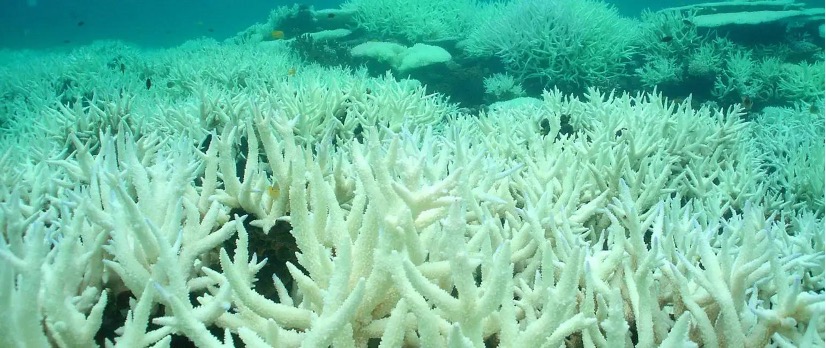Coupled decline in ocean pH and carbonate saturation during the Palaeocene–Eocene Thermal Maximum
Nov 15, 2024
Ocean Acidification and Coral Bleaching
Peking University, November 15, 2024: A research team led by Prof. Li Mingsong at Peking University has provided new insights into the Paleocene-Eocene Thermal Maximum (PETM) and its effects on ocean chemistry. This study, entitled “Coupled decline in ocean pH and carbonate saturation during the Palaeocene–Eocene Thermal Maximum” published in Nature Geoscience reconstructs ocean acidification during this ancient climate event, offering parallels with current trends linked to human-driven CO2 emissions.
Why It Matters:
The Paleocene-Eocene Thermal Maximum (PETM), 56 million years ago, was a major carbon release event that resulted in rapid global warming and significant ocean acidification. This study highlights parallels with current climate change, emphasizing the need to understand past events to predict future impacts. The findings stress the urgency of addressing human-driven CO2 emissions to protect marine ecosystems, particularly in vulnerable regions like the Arctic.
Key Findings:
1. Ocean Acidification:
The team used paleoclimate data assimilation (DA), integrating proxy data and Earth system model simulations to reconstruct ocean carbonate chemistry.
Atmospheric CO2 rose dramatically from 890 ppm to 1980 ppm during the PETM.
Acidification was most severe in high-latitude regions, similar to current trends in the Arctic, where aragonite saturation is declining.
2. PETM Overview:
The PETM was triggered by a massive carbon release, causing rapid warming and disrupting ecosystems.
Ocean pH declined by 0.46 units, from 7.91 to 7.45, causing widespread disruptions to marine life.
3. Impact on Marine Life:
Ocean acidification led to the extinction of 30%-50% of benthic foraminifera and significant marine biodiversity loss.
4. Relevance to Modern Climate Change:
Current CO2 emissions are rising faster than during the PETM, threatening marine ecosystems and emphasizing the need for urgent climate action.
Written by: Akaash Babar
Edited by: Zhang Jiang
Source: School of Earth and Space Sciences
